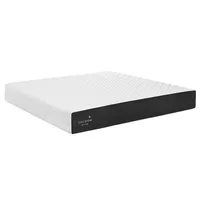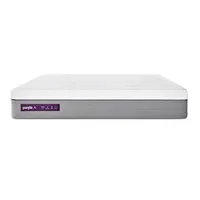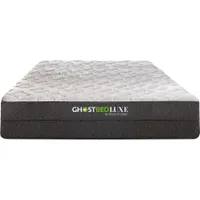What are cooling mattresses and do they really stop overheating and night sweats?
Thinking of buying a cooling mattress? Read this first
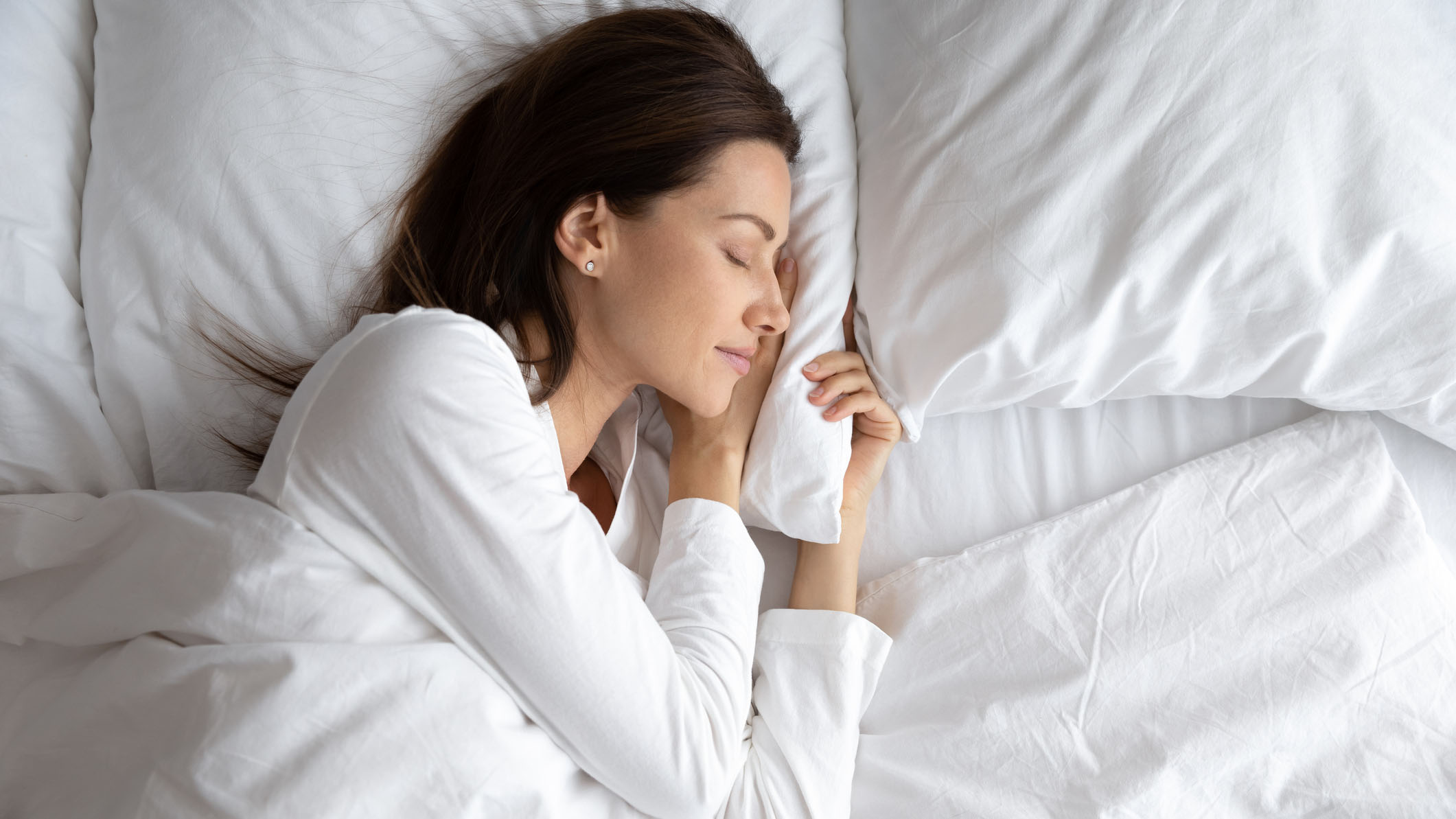
Temperature plays a huge role in how quickly we fall asleep and what the quality of sleep is like once we drift off. A 2023 study shows that the optimum temperature for sleep is between 68 and 77 °F (20 and 25 °C), so you may find yourself struggling to fall asleep if your bedroom is too warm (or too cold). Feeling overheated in bed quickly disrupts your sleep and can leave you feeling dehydrated and even cause hot flashes and night sweats.
While turning on the AC or adjusting your smart thermostat so that your room is under 77 °F can help, some hot sleepers need some extra help from their mattress. While the best mattresses usually include temperature-regulating materials to cool hot sleepers, some beds are specifically designed for those who overheat at night.
These are the best cooling mattresses of the year, designed with state-of-the art materials and mattress technologies to help you sleep cool and dry. But how do they work – and do they work? We cover everything you need to know in this guide. Plus, we’ll recommend some of our favourite cooling beds to buy for less in this month's mattress sales. If you do decide to switch your current bed for one with cooling tech, please follow our guide on how to get rid of your own mattress.
What are cooling mattresses?
A cooling mattress is any type of bed (from innerspring to memory foam) designed to keep sleepers cool and dry using temperature-balancing materials. While a lot of mattresses do provide some cooling features — such as organic, breathable materials or coil layers for ventilation — this doesn’t mean they are technically designed for cooling. Cooling mattresses, meanwhile, are made to prevent you from overheating, which make them more expensive than standard beds.
How do cooling mattresses work?
Cooling mattresses can employ a wide range of different cooling methods. Here are the most popular methods.
- Airflow systems: The more freely air flows through your mattress, the cooler it will be. The most popular way to improve air circulation in mattresses is through a layer of coils or springs (especially in innerspring and hybrid mattresses). However, beds without springs, such as all-foam beds, can use different methods, such as perforated foam or fabric with air channels.
- Breathable, cool-touch fabrics: Many all-natural materials, such as organic wool, cotton and latex, can help keep you cool and dry as they are naturally breathable and moisture-wicking (great news if you suffer from night sweats). However, there are many trademarked and patented fabrics that are designed for enhanced cooling. GlacioTex is a trademark cooling fabric that uses fibers with high thermal conductivity to quickly pull away from your body. The fabric has become a standard cover material in cooling mattresses, used by big-name mattress brands such as Helix Sleep and Bear Mattress. Ghost Ice is also a patented cooling material using woven cooling fibers, and the material is used by GhostBed mattresses.

- Phase Change Material: Phase Change Material (or PCM) is a space-age cooling technology designed to regulate temperature and wick away heat. First developed by NASA, the material absorbs extra heat and humidity and conducts it away from your body. In fact, a 2016 study found that PCMs in mattresses resulted in lower skin temperature compared to the conventional mattress and improved human heat dissipation up to 25.6% compared to a conventional mattress.
- Smart tech: Smart beds can also double as cooling mattresses, thanks to advanced, high-tech cooling features. This means you can control the temperature using smart technology, such as through an app on your phone. The Eight Sleep Pod Cover, a smart mattress cover, contains water channels that can be heated or chilled to the exact temperature you prefer. This is also known as active cooling.
- Metal, mineral, and gel infusions: In cooling mattresses that contain foam (such as memory foam beds and hybrid mattresses), you’ll often find that the foam is infused with metals and minerals, such as copper or graphite. This is because these materials are cooling as they draw away body heat. Similar to copper and graphite, gel is also infused in foam for a cooler sleeper.
What type of mattress is best for cooling?
Innerspring and hybrid mattresses tend to be the most breathable thanks to the springs or coils they contain, which promote airflow for a cooler sleep. The best hybrid mattresses usually come with a supportive layer of individually wrapped coils and springs to ensure airflow, as well as a breathable cover and a layer of memory foam infused with cooling gel.
Mattresses made from latex are also naturally cooling, and can help reduce overheating at night. Memory foam beds, on the other hand, are the least cooling type of mattress as they are notorious for trapping body heat
Get instant access to breaking news, the hottest reviews, great deals and helpful tips.
However, cooling mattresses are made from all sorts of materials — even memory foam — as they use advanced temperature-regulating tech and materials to boost the cooling power of a mattress and offset any heat-trapping tendencies.
Can cooling beds really reduce overheating?
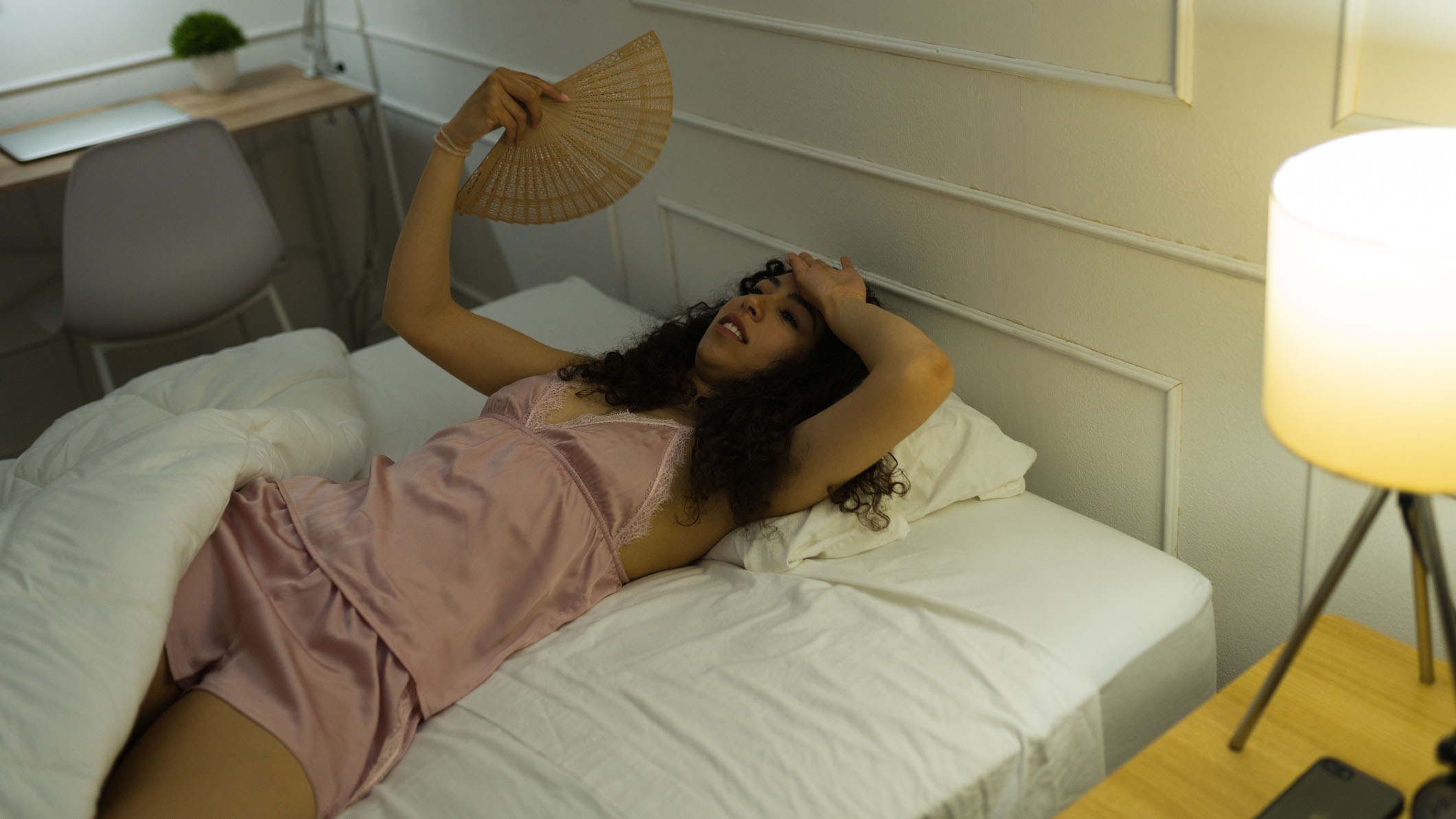
So, do cooling mattresses actually work to stop night sweats, overheating, and generally sleeping hot? While testing out some of the most popular cooling mattresses on the market, our testers found that most cooling mattresses prevented overheating and kept them cool and dry — or at least cooler than before.
While cooling mattresses are designed to regulate temperature, some mattresses can’t live up to their promises when up against those who suffer from extreme overheating or night sweats.
Anyone who lives in a warm climate, suffers from overheating or night sweats, or deals with hot flashes brought on by natural conditions such as menopause would benefit from a proper cooling bed. In fact, a study on menopause found that sleeping on a cooling mattress can reduce the frequency and severity of sleep disturbances by over 52%.
For example, we discovered that many common cooling methods — such as the addition of gel and copper into the foam — didn’t stand up against heat waves or hot flashes. In fact, we advise anyone to take the benefits of gel and metal infusions with some scepticism, as we find the temperature difference it creates to be minimal.
However, other cooling methods have been shown to make a big difference to temperature. For instance, researchers found that Phase Change Material in mattresses lowered skin temperature and improved human heat dissipation by up to 25.6% compared to a conventional mattress. In fact, we discovered that gel and metal infusions tend to work better in tandem with PCMS.
Another cooling material we found to be effective against night sweats and overheating is GlacioTex, which is used in a lot of cooling beds’ covers. We found this fabric to be cool-to-the-touch and excellent for keeping dry when prone to night sweats. We also discovered that the addition of coils, springs, and open, air-circulating structures also help to enhance breathability for a cool night’s sleep.
Is cooling gel toxic in mattresses?
Cooling gel-infused memory foam was created to offset the heat-trapping effect of memory foam and to provide a cooler surface to sleep on. The gel is designed to draw heat away from your body and wick away moisture from night sweats to keep you cool and dry, and it’s infused into foam by a number of ways: incorporating a gel pad layer on top or in the middle of the mattress; pouring it into the foam mold as it sets; or placing it within the mattress layers in bead form.
Despite its prevalence in memory foam beds, cooling gel is synthetic and not for those looking for an all-natural bed. According to sleep brand Turmerry, cooling gels contain toxic chemicals, including benzene, formaldehyde, and naphthalene, which are unfit for human use as well as the environment. According to eco-luxury mattress brand Avocado, exposure to formaldehyde is known to cause adverse health effects.
Our top three cooling mattresses
1. Cocoon by Sealy Chill: from $839 $539 at Cocoon by Sealy
This foam mattress made our best cooling mattress guide for its excellent value, pressure relief, and, of course, temperature regulation. It provides both comfort and coolness through the brand's Phase Change Material memory foam, which dissipates body heat while cradling your pressure points. Couples may also want to check this cooling bed out, as our Cocoon Chill Memory Foam Mattress review found that the memory foam delivers superb motion isolation Plus, you'll never pay full price for the Chill mattress – the evergreen Cocoon by Sealy mattress sale knocks 35% off MSRP, which brings the price of a queen to $899. The bed also comes with a 10-year warranty, 100-night sleep trial, and free shipping.
2. Purple Mattress: from $799 $599 at Purple
In our Purple Mattress review, we were impressed with the Purple Original’s polymer grid system - there are over 2,800 open air channels to allow cooling throughout the mattress - the breathable foams, and soft flex cover. Extras include a 10-year warranty, 100-night sleep trial, and free shipping. You can't always get a discount on Purple's mattresses, but there's currently up to $400 off the original mattress. A queen is priced at $999 (was $1,399) with this discount, which beats the Black Friday deal that only knocked $200 off the MSRP.
3. GhostBed Luxe Cooling Mattress: from $2,595 $1,298 at Ghostbed
The GhostBed Luxe uses the brand’s patented Ghost Ice technology, which testers for our GhostBed Luxe Cooling Mattress review said makes the top cover cool to the touch but absorbs heat throughout the night and away from the body. We also rate it as a great mattress for side sleepers and couples thanks to its medium-plush feel and strong motion isolation. The GhostBed Luxe is never sold for MSRP – there's a permanent 50% off deal. While the offer of freebies isn’t currently available, you can sometimes get two free pillows with your purchase. Extras include a 25-year warranty, a 101-night sleep trial, and free shipping.

Frances Daniels is a PPA-accredited journalist and Sleep Staff Writer at Tom's Guide with an MA in Magazine Journalism from Cardiff University. Her role includes covering mattress and sleep news and writing sleep product reviews and buyer's guides, including our Best Hybrid Mattress 2025 guide. She is interested in the relationship between sleep and health, interviewing an array of experts to create in-depth articles about topics such as nutrition, sleep disorders, sleep hygiene, and mattress care. She is also our specialist on mattress toppers — producing bed topper reviews and taking care of our Best Mattress Toppers 2025 guide — and leads content relating to fiberglass-free beds for a non-toxic sleep. Outside of Tom's Guide, she has written for Ideal Home and Marie Claire.
 Club Benefits
Club Benefits





